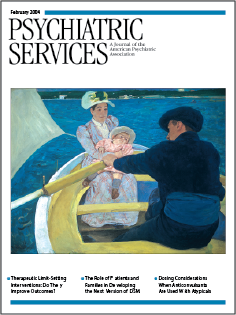Psychiatric Emergencies After the Terrorist Attacks of September 11, 2001
Abstract
OBJECTIVE: Population surveys suggest that the events of September 11, 2001, resulted in psychiatric emergencies in U.S. communities. This study tested the extent of such emergencies in San Francisco. METHODS: Interrupted time-series designs were applied to counts of emergency calls to the police during the 424-day period beginning January 1, 2001, and of voluntary and coerced admissions to psychiatric emergency services during the 1,620-day period beginning July 1, 1997. RESULTS: The number of men and women who were coerced into treatment increased significantly on Thursday, September 13, but the number of voluntary admissions was as expected. The number of telephone calls from citizens that police dispatchers judged to be mental health related increased significantly on Wednesday, September 12, and remained elevated through September 13. Several additional analyses were conducted to test the stability of the findings, and the results were essentially unchanged. CONCLUSIONS: The events of September 11 may not have induced emergent mental illness in U.S. communities at relatively great distance from the attacks. However, it is possible that persons with severe mental illness were either more evident to or less tolerated by the community.



